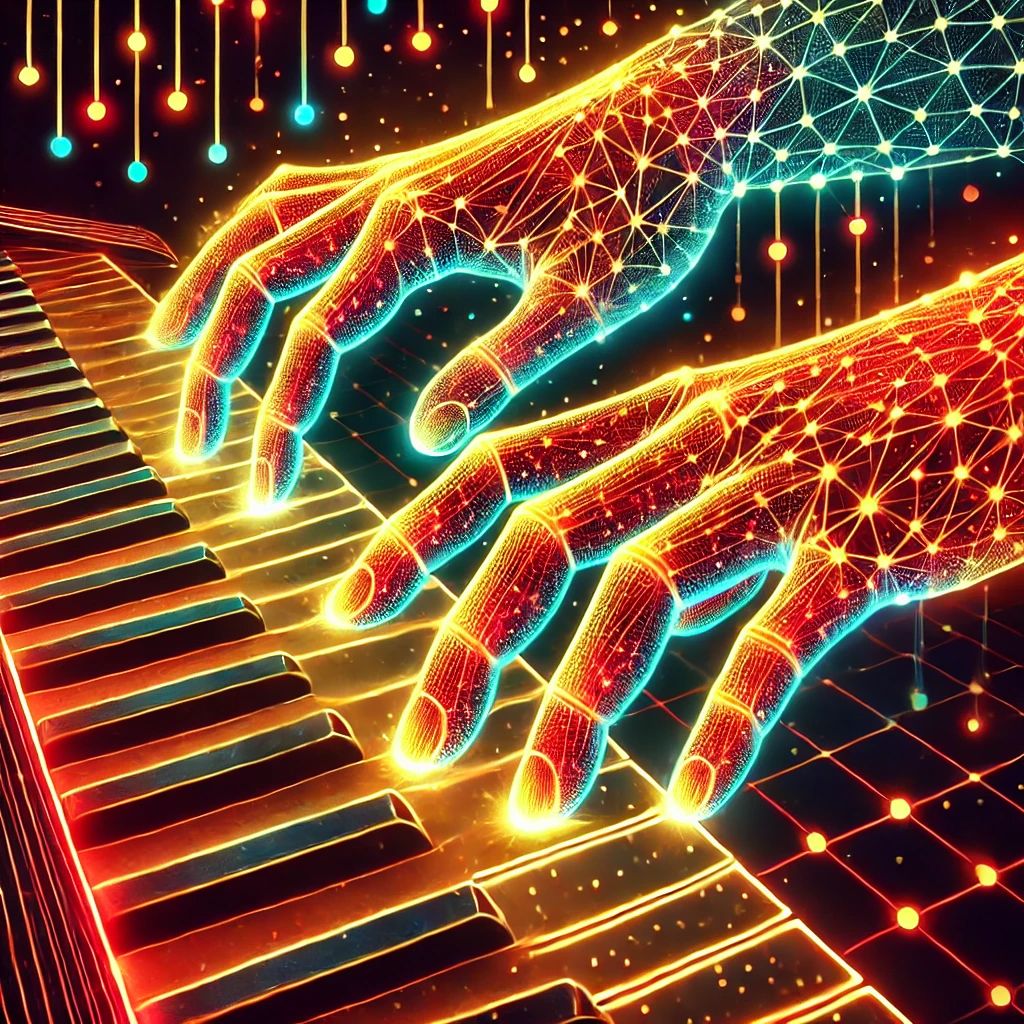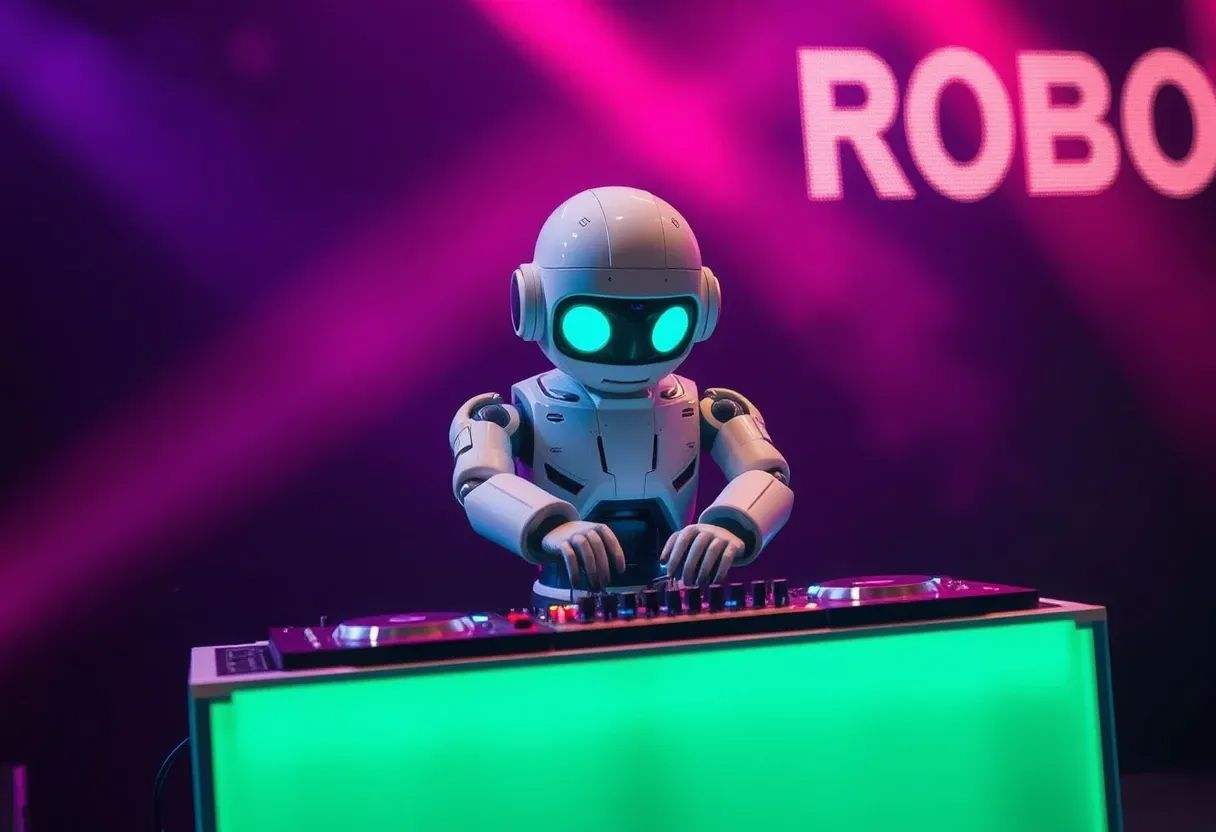and the distribution of digital products.
DM Television
Would You Go and See an AI Artist Live?
Given the increased infiltration of AI into a variety of creative domains and how it places the music industry at a very critical juncture. With artificially created music growing increasingly, the question is no longer will AI replace the human artist, but much more about how the audience perceives and interacts with this new wave of creativity.
\ Opinions are growing that are uncertain, curious, and flat-out fearful over this technological shift. The landscape changed fast, from AI-driven virtual concerts to the sneaky inclusion of AI tracks in Spotify playlists; not everyone is on board.
Would You Attend an AI Concert?Going to a concert where the music being performed was created all by AI has been quite hotly debated. Will people would be interested in the live performance of an AI artist? While AI music has come leaps and bounds to the point where, in many cases, it is nearly indistinguishable from human-created music, most seem to conclude that perhaps it lacks the soul and authenticity that comes with human performance.
\ Would I ever listen to it, even? Or even give it the time to attend an AI concert one day? Is it art or the opposite of art? To some, there will be so many questions echoing this very general belief: music is essentially a human expression at its core, and therefore AI, advanced as it may well be, cannot produce art. This emotional connection is one that is usually there between the artist and his audience, which can be fostered through sharing experiences and even vulnerability. The creator involved being a machine means a possible loss in translation.
\ Not everyone looks at AI music in such a dispelling social light, to some, the idea of AI music does hold merit; it's an innovative way to stay within the genre. Drawing a parallel between AI and early hip-hop regarding the breakthrough possibility, Think of Afrika Bambaataa and Grandmaster Flash, along with other DJs who redefined the face of music by repurposing old songs.
\ AI would eventually be honed and become another tool for the creation of new kinds of artistic expressions in those expressions, it will be new and exciting.

\
The Dystopian Appeal of AI-Generated ConcertsThe concept of such AI-generated concerts transcends music itself. Imagine being able to virtually attend a Pink Floyd concert from the 1970s, along with AI visuals, authentic stage settings, and even the band's feelings. But while the prospect gets some fans' hearts racing, for others, it doesn't sit well.
\ "Hollow and life-less," as some would say because of the discomfort given by the uncanny valley effect AI often triggers. This "creepiness" is an apparent realization that, while AI can indeed imitate the surface of human creativity, it cannot grasp and preserve the deeper essence that makes art resonate on a personal level.
\ Yet, there's also the practical side of the argument. New technologies always receive fear and scepticism in their infancy. Just like how early cinema and recorded music were considered fake in their time, AI concerts might one day be accepted just like a record or a video of our time.

\
The Spotify Controversy: AI Music in DisguiseThe more immediate concern to music listeners is how AI-generated music has quietly invaded popular streaming platforms like Spotify. Spotify had been populating playlists with AI-generated tracks without disclosing their origin. The tactic which has enraged users who said they feel deceived by the platform.
\ The fact that none of these "artists" have a human backstory to speak of, nor social media presence, is one giveaway, but it's not one most listeners would likely pick up on. And that kind of blending without labelling is where things start to get really ethically grey. Should Spotify be obliged to indicate when music is AI-generated? Some users say this transparency will retain trust, but also prevent human artists from being pushed out by cheaper, AI-produced alternatives.
\ It also speaks to the growing fear that AI could soon flood the streaming services with a flood of low-quality, mass-produced tracks. As AI generation becomes more universal, so the fear goes, the quality and variety of the music may therefore suffer, with algorithms favouring formulaic compositions over genuine artistic innovation.
The Future of Music: Innovation or Erosion?With each step of its evolution, the role AI will play in the creation of music will also continue to change. While some see this as a new frontier of exciting possibility, where the technology - so bright and fresh - heightens creativity and allows new modes of expression, it represents the erosion of everything that makes the music meaningful to begin with: the human touch.
\ We might recognize AI music's value if it was used to complement, not replace, human creativity. A machine creating personalized music for listeners, perhaps? Sure. That idea of AI as a collaborator in creativity, not a replacement, possibly is the key to acceptance within the music world.
- Home
- About Us
- Write For Us / Submit Content
- Advertising And Affiliates
- Feeds And Syndication
- Contact Us
- Login
- Privacy
All Rights Reserved. Copyright , Central Coast Communications, Inc.